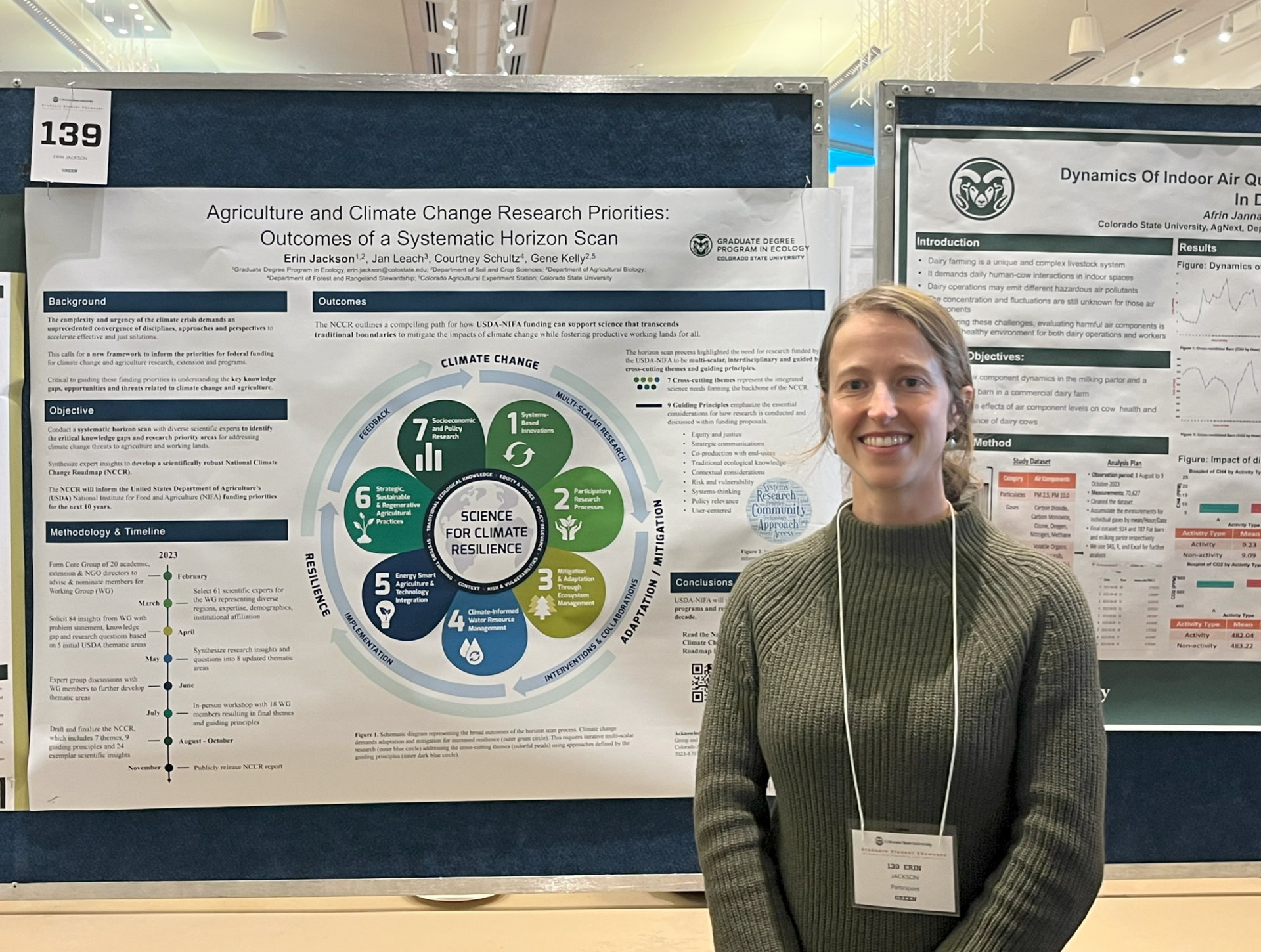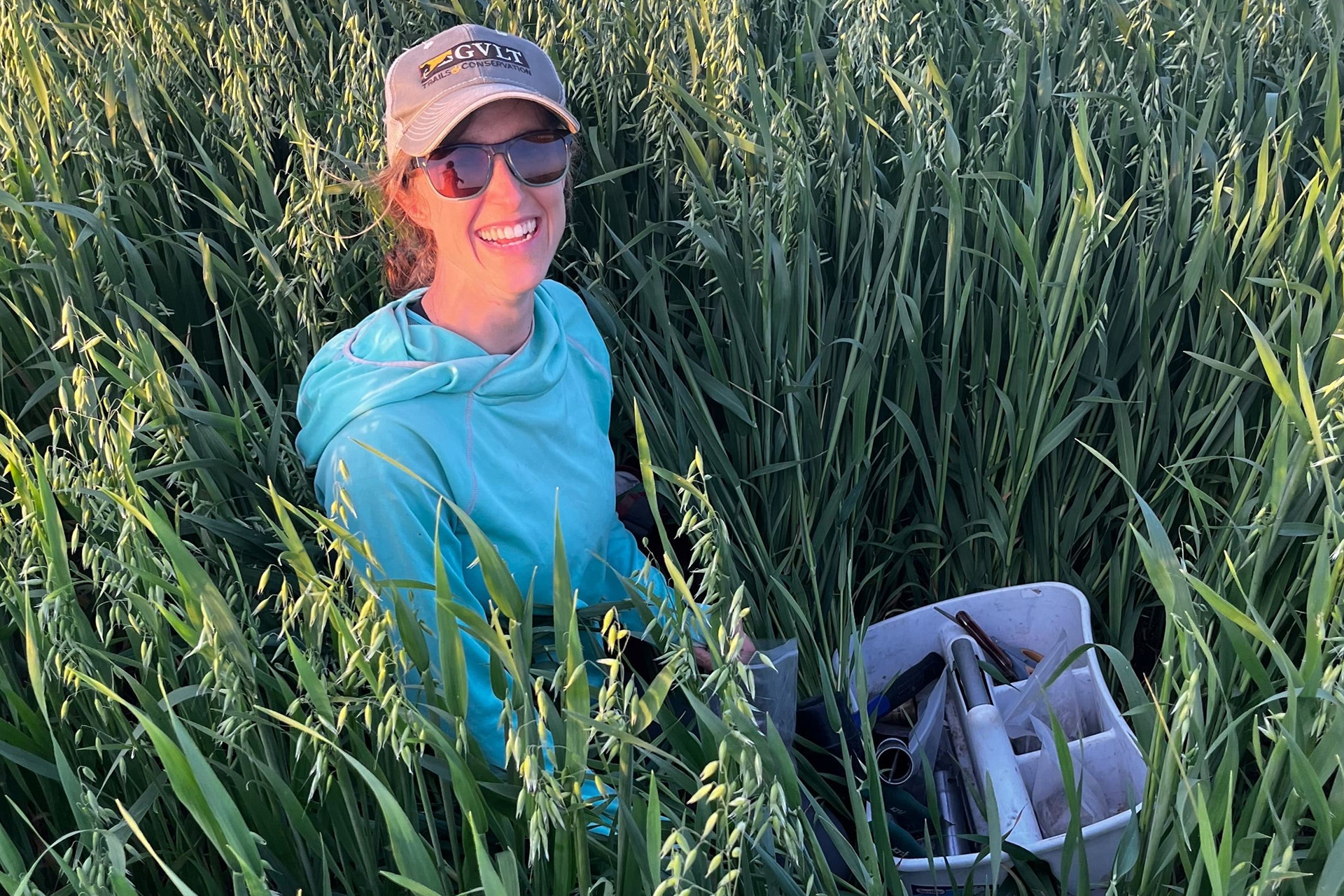
Erin Jackson, a graduate student in Colorado State University’s Graduate Degree Program in Ecology, won first place in the Top Scholars Award for University-Wide Graduate Programs at the 2023 Graduate Student Showcase. This award is given to graduate students for outstanding interdisciplinary research.
Jackson was awarded for her work in supporting a team of scientists in the creation of the USDA-funded National Climate Change Roadmap, which will be used to set priorities for the USDA’s climate change research for the next decade.
“Climate change threatens agriculture and food security and contributes to biodiversity loss. At the same time, agricultural production is a main contributor to greenhouse gas emissions that exacerbate climate change. An unprecedented convergence of disciplines is needed to implement solutions to this pressing issue,” Jackson said as she explained the reason behind the National Climate Change Roadmap.
For Jackson, the most exciting outcome of this project was the guiding principles for research that the team developed with the NCCR working group. Jackson noted that both natural and social scientists expressed a need for science to transcend traditional boundaries and bring together people from across disciplines to tackle the climate crisis and its impact on agriculture and working lands. She also appreciated the call that emerged for a collaborative, participatory and equitable approach to ensure that future research is informed by and relevant to the communities and producers that the research may impact.
Jackson encourages all graduate students to participate in the Grad Student Showcase. “The Gradshow provided a great opportunity to practice explaining my research and to receive feedback from the CSU community. It prepared me to present this project at national conferences, including the American Geophysical Union Annual Meeting in December and the American Academy for the Advancement of Science (AAAS) Conference in February.”
According to the USDA, the next step in implementing the roadmap will be “to create a National Climate Action Plan for Extension programs, using the needs identified in the roadmap as a guide.”
Jackson’s research beyond Climate Change Roadmap

The National Climate Change Roadmap Project is just one component of Jackson’s Ph.D. research, which focuses more broadly on agroecological transitions in the United States. She studies the impacts of regenerative farm management practices on soil health. Her research uses a systems-based approach to address the complex issues around climate-resilient food production, community well-being and ecosystem health.
“It is important to understand how the real-world management decisions farmers make—in response to environmental, economic and social constraints—are impacting soil nutrient cycling, structure and biological activity that influence the productivity and resilience of their farms,” said Jackson. Acknowledging the critical human element of agriculture, Jackson also integrates social science methods to understand the opportunities and barriers for the adoption of agroecology approaches.
Jackson is also a fellow of the Foundation for Food and Agriculture Research, or FFAR – a nonprofit organization that supports pioneering science to provide everyone access to affordable, nutritious food grown on thriving farms.
Jackson chose the Graduate Degree in Ecology Program because it allows students to work in interdisciplinary fields. She said she was drawn to the program because she can take courses in both biophysical and social sciences and work with expert faculty across multiple departments. CSU’s renowned Department of Soil and Crop Sciences and the many research scientists studying climate change and agriculture in the field scale and policy side, were both major draws for Jackson.